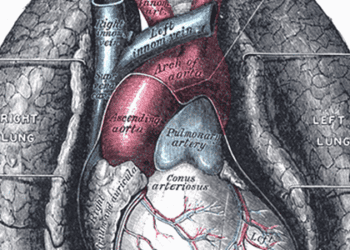Low-dose calcium noninferior to high-dose calcium in reducing rates of pre-eclampsia
1. In two randomized, noninferiority trials, low-dose calcium in pregnant women with low dietary calcium intake was noninferior to high-dose supplementation in reducing the risk of pre-eclampsia.
2. Low-dose calcium was noninferior to high-dose calcium in reducing the risk of live preterm birth in the trial in India but not in Tanzania.
Evidence Rating Level: 1 (Excellent)
Study Rundown: Hypertensive disorders of pregnancy, including preeclampsia, are one of the most common complications of pregnancy and are associated with an increased risk of preterm birth and death. For over a decade, the World Health Organization (WHO) has recommended calcium supplementation in pregnant populations with low dietary calcium intake to reduce the risk of pre-eclampsia. The complex dosing scheme proposed by the WHO, which includes 1,500 to 2,000 mg of calcium divided into three doses per day, has led to adherence concerns. Previous trials involving a single 500 mg dose of calcium have generally shown similar benefits to higher doses, although these studies were limited by small sample sizes. These two independent randomized trials investigated whether calcium supplementation with 500 mg was noninferior to that with 1,500 mg in pregnant populations in India and Tanzania, respectively. Overall, both trials demonstrated that low-dose calcium supplementation was noninferior to high-dose supplementation in reducing the risk of pre-eclampsia. Moreover, low-dose calcium was noninferior to high-dose calcium in reducing the risk of live preterm birth in the trial in India but not in Tanzania. As the study only enrolled nulliparous pregnant women, the generalizability of its findings to other pregnant populations is somewhat limited.
Click to read the study in NEJM
In-Depth [randomized controlled trial]: Two independent, randomized, noninferiority trials were performed to investigate the noninferiority of a 500 mg daily dose to a 1500 mg daily dose of calcium supplementation on reducing the risk of preeclampsia and preterm birth. Nulliparous pregnant women less than 20 weeks gestation in India and Tanzania were enrolled in respective studies held in each country. Participants were randomly assigned in a 1:1 ratio to receive a 500 mg or 1500 mg dose of elemental calcium daily until the day of delivery. In terms of primary outcomes, pre-eclampsia was defined as at least one of the following from 20 weeks gestation to delivery: gestational hypertension with proteinuria, gestational proteinuria in patients with chronic hypertension, development of pre-eclampsia with severe features, or clinical diagnosis of pre-eclampsia. Preterm birth was defined as a live birth before 37 weeks gestation. Both the India and Tanzania trials enrolled 11,000 pregnant participants. The incidence of pre-eclampsia in the low-dose calcium and high-dose calcium groups was 3.0% and 3.6%, respectively, in the India trial (relative risk, 0.84; 95% Confidence Interval [CI], 0.68 to 1.03), and 3.0% and 2.7% respectively in the Tanzania trial (relative risk, 1.10; 95% CI, 0.88 to 1.36), suggesting that the 500 mg dose was noninferior in both studies. The incidence of preterm birth in the low-dose calcium and high-dose calcium groups was 11.4% and 12.8%, respectively, in the India trial (relative risk, 0.89; 95% CI, 0.80 to 0.98), and 10.4% and 9.7% respectively in the Tanzania trial (relative risk, 1.07; 95% CI, 0.95 to 1.21), suggesting that the lower dose was noninferior in the India trial but not in the Tanzania trial. In summary, the two studies demonstrated that low-dose calcium supplementation in pregnant women was noninferior to high-dose supplementation in reducing the risk of preeclampsia.
Image: PD
©2024 2 Minute Medicine, Inc. All rights reserved. No works may be reproduced without expressed written consent from 2 Minute Medicine, Inc. Inquire about licensing here. No article should be construed as medical advice and is not intended as such by the authors or by 2 Minute Medicine, Inc.







